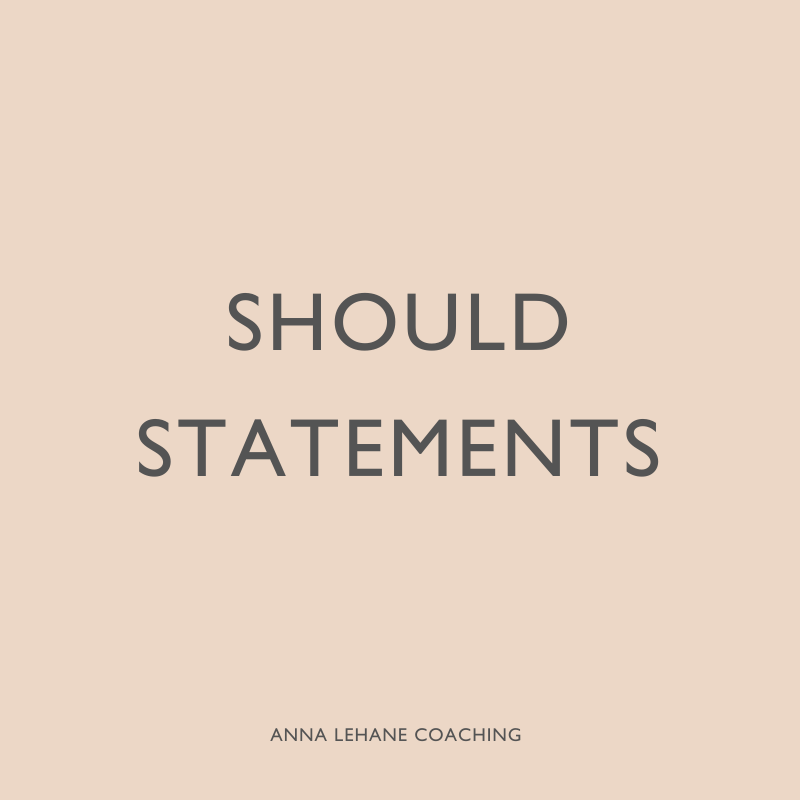Should Statements
Luigi (my brother with four legs), is high energy and needs plenty of walking. However, I have this constant battle about bringing my phone on walks with me – I think I SHOULD leave it at home so I can enjoy nature but then I think I SHOULD bring it in case something happens and I need it!
Why I am I shouting the word ‘should’? Well, because ‘should’ statements are a very commonly used cognitive distortion. These cognitive or thinking distortions lead us to feelings of fear and worry. Thinking or saying ‘I should’ or ‘I shouldn’t’ is putting pressure on ourselves and isn’t there enough external pressure without us adding additional internal pressures?
Notice When and How Often You Say Should
Now I appreciate my walking example is a very simple example but it does demonstrate how having should statements can make a simple everyday situation more stressful than it needs to be.
It’s worth looking out for the should statements you use and the frequency of them. When you set these should statements as internal rules things can become tricky. Watch out for these should statements and explore the belief that’s behind them. Notice them, examine them and don’t believe everything you think!
I should do that because...
If you’re having difficulty with this, try finish the sentence of what you think will happen if you don’t follow your rule for example ‘I should leave my phone at home so I can enjoy nature. If I have my phone I’ll be distracted and I won’t be present on my walk.’ Oh look, an assumption! Just because I have my phone I assume I’ll be distracted and won’t be present – well, in fact, it’s my responsibility whether or not I let my phone distract me, after all I control the notifications on it!
So let’s look at the second part of my should statement; ‘but I should bring it in case something happens like I get hit by a car or Luigi could hurt himself…’ I could think of plenty more but let’s not go down that unnecessary rabbit hole! But yes, look something might happen, something may also not happen but in reality it’s ok to bring my phone if it makes me feel safer and like I said, it’s only a distraction if I make it a distraction!
So now maybe next time, I could bring my phone on my walk in case something happens so I feel safe but I can also leave it in my pocket unless needed and not feel like I should have left it at home! Win Win!

